"Sounds" is a short story by Russian American author Vladimir Nabokov originally written in Russian in September 1923.
"Sounds" is a short story by Russian American author Vladimir Nabokov originally written in Russian in September 1923.
In the story, the narrator recounts to an old flame a date they once had, whilst her husband was away, where they visited a friend, Pal Palych, in the country. From the very beginning, it is revealed that the narrator is an aesthetic individual, prone to epiphanies. For him, the world seems "homogeneous, congruent, bound by the laws of harmony". [1] Whereas the narrator is prone to communicate his epiphanies in the language of sound, the woman is "habitually untalkative". [2] When the narrator must venture back to Palych's house to retrieve his date's cigarette-holder, he finds his friend bleary eyed and suggests that he get outside more. Towards the end, the woman tells the narrator that she'd leave her husband to be with him. The reader by now already suspects that something is up, as the narrator has revealed that he loves not only her, but the entire world: "it was not you alone who were my lover but the entire earth". [3] In the end, the narrator rides his bicycle home, stopping along the way to sit on a park bench where he notices a woman he plans to talk to, as well as seeing Palych fishing.
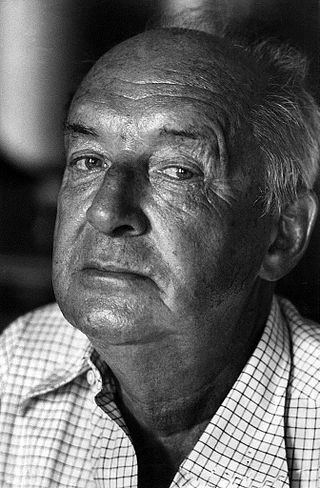
Vladimir Vladimirovich Nabokov, also known by the pen name Vladimir Sirin, was a Russian-American novelist, poet, translator, and entomologist. Born in Imperial Russia in 1899, Nabokov wrote his first nine novels in Russian (1926–1938) while living in Berlin, where he met his wife. He achieved international acclaim and prominence after moving to the United States, where he began writing in English. Nabokov became an American citizen in 1945 and lived mostly on the East Coast before returning to Europe in 1961, where he settled in Montreux, Switzerland.
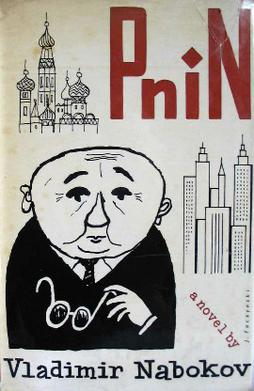
Pnin is Vladimir Nabokov's 13th novel and his fourth written in English; it was published in 1957. The success of Pnin in the United States launched Nabokov's career into literary prominence. Its eponymous protagonist, Timofey Pavlovich Pnin, is a Russian-born assistant professor in his 50s living in the United States, whose character is believed to be based partially on the life of both Nabokov's colleague Marc Szeftel as well as on Nabokov himself. Exiled by the Russian Revolution and what he calls the "Hitler war", Pnin teaches Russian at the fictional Waindell College, loosely inspired by Cornell University and Wellesley College—places where Nabokov himself taught.

Despair is the seventh novel by Vladimir Nabokov, originally published in Russian, serially in the politicized literary journal Sovremennye zapiski during 1934. It was then published as a book in 1936, and translated to English by the author in 1937. Most copies of the 1937 English edition were destroyed by German bombs during World War II; only a few copies remain. Nabokov published a second English translation in 1965; this is now the only English translation in print.
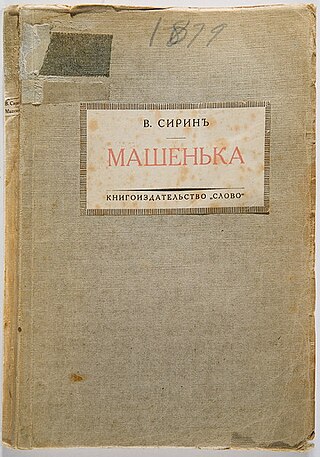
Mary is the debut novel by Vladimir Nabokov, first published under the pen name V. Sirin in 1926 by Russian-language publisher "Slovo".
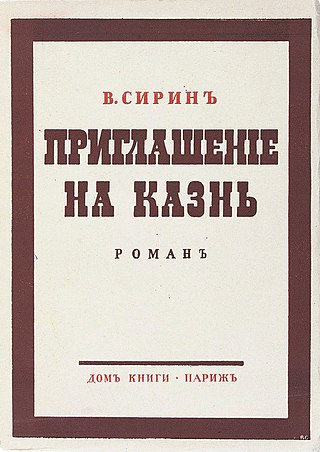
Invitation to a Beheading is a novel by Russian American author Vladimir Nabokov. It was originally published in Russian from 1935 to 1936 as a serial in Sovremennye zapiski, a Russian émigré magazine. In 1938, the work was published in Paris, with an English translation following in 1959. The novel was translated into English by Nabokov's son, Dmitri Nabokov, under the author's supervision.
"Signs and Symbols" is a short story by Vladimir Nabokov, written in English and first published, May 15, 1948 in The New Yorker and then in Nabokov's Dozen.
The Real Life of Sebastian Knight is the first English-language novel by Vladimir Nabokov, written from late 1938 to early 1939 in Paris and first published in 1941. A work centred on language and its inability to convey any satisfactory definition, it has been identified as a forerunner of the postmodernist novel.
The Eye, written in 1930, is Vladimir Nabokov's fourth novel. It was translated into English by the author's son Dmitri Nabokov in 1965.

King, Queen, Knave is the second novel written by Vladimir Nabokov while living in Berlin and sojourning at resorts in the Baltic. Written in the years 1927–8, it was published as Король, дама, валет in Russian in October 1928 and then translated into German by Siegfried von Vegesack as König, Dame, Bube: ein Spiel mit dem Schicksal. Forty years later the novel was translated into English by Nabokov's son Dmitri, with significant changes made by the author. A film adaptation only loosely based on the novel followed in 1972.
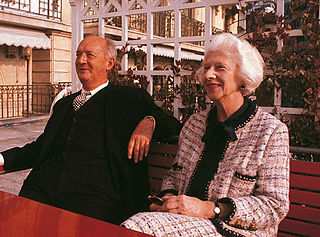
Véra Yevseyevna Nabokova was the wife, editor, and translator of Russian writer Vladimir Nabokov, and a source of inspiration for many of his works.
"Spring in Fialta" is a short story written by Vladimir Nabokov in 1936, originally as Весна в Фиальте in Russian, during his exile in Berlin. The English translation was performed by Nabokov and Peter Pertzov. Spring in Fialta is included in Nine Stories and Nabokov's Dozen.
"Bachmann" is a short story written in Russian by Vladimir Nabokov under his pen name, Vladimir Sirin, in Berlin in 1924. The story details a three-year love affair between the titular Bachmann, a celebrated pianist, and Mme. Perov, a married woman.
"The Leonardo" is a short story written in Russian by Vladimir Nabokov in Berlin in the summer of 1933. It was first published as Korolyyok in Posledniye Novosti in Paris the same year, and in 1956 as part of the collection Vesna v Fialte. After its translation into English by the author and his son Dmitri Nabokov it was incorporated into the collection A Russian Beauty and Other Stories and published in 1971.

Lolita is a 1955 novel written by Russian-American novelist Vladimir Nabokov that addresses the controversial subject of hebephilia. The protagonist is a French literature professor who moves to New England and writes under the pseudonym Humbert Humbert. He describes his obsession with a 12-year-old "nymphet", Dolores Haze, whom he kidnaps and sexually abuses after becoming her stepfather. Privately, he calls her "Lolita", the Spanish diminutive for Dolores. The novel was originally written in English, but fear of censorship in the U.S. and Britain led to it being first published in Paris, France, in 1955 by Olympia Press.
"Details of a Sunset" is a short story by Vladimir Nabokov written in Russian under his pen name Vladimir Sirin in Berlin in 1924.
"The Wood-Sprite" is a short story by Vladimir Nabokov, originally published in Russian in 1921. It was his first published story.
"Music" is a short story by Russian American author Vladimir Nabokov originally published in Russian in 1932.
"Orache" is a short story by Russian American author Vladimir Nabokov originally published in Russian in 1932.
"The Passenger" is a short story by Russian American author Vladimir Nabokov originally published in Russian in 1927.
"That in Aleppo Once..." is a short story written by Russian-born author Vladimir Nabokov (1899–1977). First published in Atlantic Monthly in 1943, the story takes epistolary form, with an unnamed narrator describing his recollections of himself and his wife's deteriorating relationship while fleeing German occupation during Case Anton. The narrator reveals to his correspondent the likelihood his wife was not real, examining this premise during the account of events.